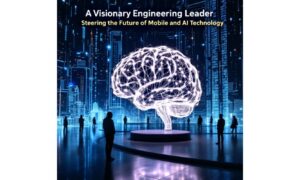In todays technological advancement, artificial intelligence (AI) has transcended boundaries, infiltrating various industries, including music creation. From composition to production, AI technology has revolutionized the way music is made, challenging traditional methods and offering unprecedented possibilities. Here are some profound impacts AI has had on music creation and how it continues to shape the industry.
Composition
Composing music nowadays doesn’t require extensive training and expertise. AI algorithms analyze vast amounts of musical data, generating melodies, harmonies, and even entire compositions tailored to your preferences. With an AI music generator, as a musician, you can explore endless creative avenues effortlessly. Whether you’re a seasoned composer seeking inspiration or an amateur musician experimenting with melodies, AI opens doors to new realms of creativity and innovation.
- AI composition tools utilize machine learning algorithms to analyze vast datasets of musical compositions, identifying patterns and structures that inspire creative output. By leveraging this technology, you can explore diverse musical styles, from classical symphonies to contemporary pop melodies, expanding your artistic repertoire and experimenting with unconventional genres.
- These AI algorithms not only generate original compositions but also offer customization options, allowing you to adjust parameters such as tempo, key, and instrumentation to suit your artistic vision. This level of flexibility empowers you to tailor the generated music to specific moods, themes, or project requirements, ensuring each composition is unique and expressive.
Collaboration
In the collaborative landscape of music creation, AI serves as a versatile partner, facilitating seamless interactions between artists, producers, and engineers. Through cloud-based platforms and virtual assistants, you can collaborate with musicians worldwide in real-time, transcending geographical barriers and fostering a global community of creators. AI-driven collaboration tools streamline communication, project management, and file sharing, empowering you to bring your musical visions to life collaboratively.
- Cloud-based collaboration platforms harness the power of AI to facilitate seamless communication and project management among distributed teams of musicians and producers. By providing centralized storage, version control, and real-time collaboration features, these platforms streamline the collaborative workflow, ensuring efficient and productive interactions.
- AI virtual assistants, equipped with natural language processing capabilities, enhance communication within collaborative projects by providing instant feedback, scheduling assistance, and task reminders. With AI handling administrative tasks, you and your collaborators can focus on the creative aspects of music production, fostering a collaborative environment conducive to artistic exploration and innovation.
- Furthermore, AI algorithms analyze user engagement and interaction patterns within collaborative projects, providing valuable insights into team dynamics and individual contributions. By leveraging these insights, project managers can optimize collaboration strategies, allocate resources effectively, and maximize productivity, ultimately leading to the successful realization of creative visions.
Production
Once the composition is complete, AI seamlessly transitions into the production phase, streamlining workflows and enhancing efficiency. From mixing and mastering to sound design and arrangement, AI-driven production tools offer unmatched precision and flexibility. By analyzing audio signals and patterns, AI algorithms optimize sound quality, ensuring each element of your music resonates with clarity and depth. With AI as your ally, you can elevate your productions to professional standards with ease.
- AI-driven production tools employ advanced audio processing techniques, such as neural networks and deep learning algorithms, to analyze and enhance individual audio tracks. Through dynamic range compression, equalization, and noise reduction, these tools optimize the sonic characteristics of each element, resulting in a polished and professional sound.
- Additionally, AI algorithms can automate repetitive tasks, such as vocal tuning, beat synchronization, and sample selection, saving you valuable time and effort in the production process. With AI handling mundane tasks, you can focus on the creative aspects of music production, experimenting with arrangement, texture, and atmosphere to create truly immersive musical experiences.
- Moreover, AI-powered production tools offer interactive interfaces and intuitive controls, making complex audio processing techniques accessible to musicians of all skill levels. Whether you’re a novice producer or a seasoned professional, AI technology empowers you to achieve studio-quality results with confidence and ease, regardless of your technical expertise.
Personalization
One of the most significant advantages of AI in music creation is its ability to personalize the listening experience for both creators and audiences. By analyzing user preferences, listening habits, and contextual data, AI algorithms curate personalized playlists, recommend new music, and even generate tailored compositions based on individual tastes. As a musician, you can leverage AI to gain insights into audience preferences, refine your artistic style, and engage with your fans on a deeper level.

From composition to production, collaboration to personalization, AI technology continues to reshape the landscape of the music industry, empowering artists and enthusiasts alike to explore new horizons and redefine the art of music creation. So, you can seize the opportunity, harness the power of AI, and let your musical imagination soar to unprecedented heights. The future of music creation is here, and it’s driven by AI.



































